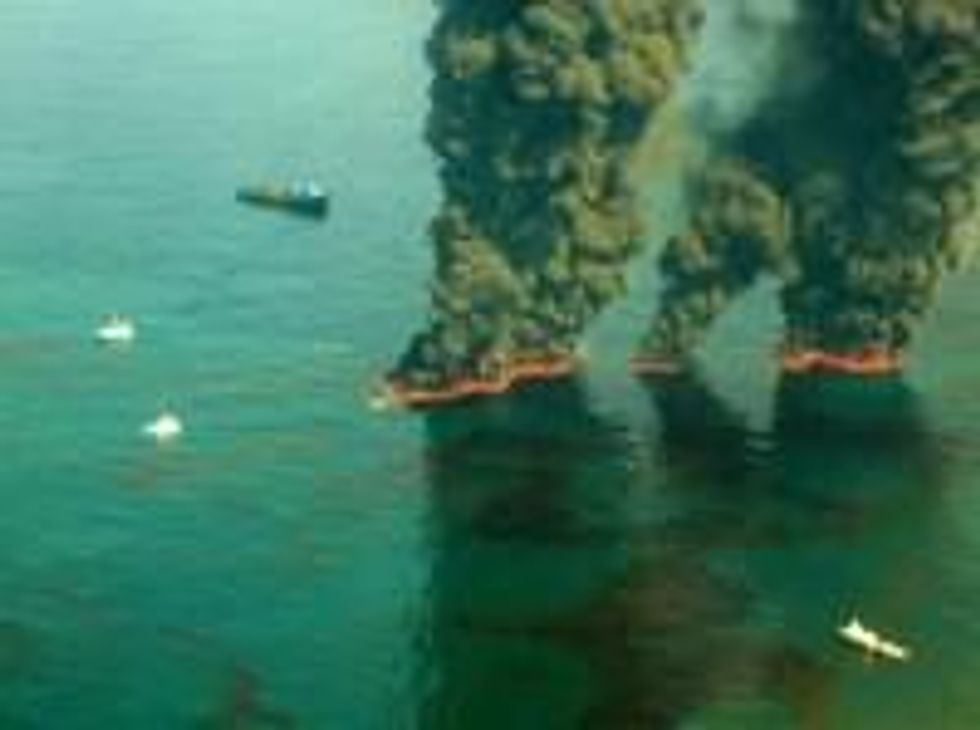One year ago today, British Petroleum's Deepwater Horizon offshore drilling unit exploded in the Gulf of Mexico -- a catastrophe that most Americans will never forget.
11 people lost their lives. According to Good, roughly 5 million barrels of oil gushed uncontrollably into the Gulf - eventually covering more than 60 miles of shoreline. Areas of the shore remain oil-soaked to this day.
The tragedy highlighted the need for new regulations to strengthen oversight of offshore drilling. In response, Congress held more than 60 hearings related to the BP disaster; more than 100 oil spill-related bills were introduced.
How many passed? None. Zero.
In fact, a member of the House of Representatives actually apologized to BP President Tony Hayward at a hearing. But, where national leadership has failed, local leadership has stepped in to make a difference.
Every day, across this nation, ordinary people are doing extraordinary things to give back and help others. They don't do it for fame or votes or personal rewards -- they simple see people in need and act.
In New Orleans, there are unsung heroes who are working to build a green future. They include:
- Operation Reach, which runs the GulfSouth Youth Biodiesel Project and trains young people to create fuel sources from organic material;
- Total Community Action, which is weatherizing homes and putting people to work; and
- Numerous other organizations in the area who are running urban farms, harnessing the power of the sun and building water management systems.
On this Earth Week, Green For All urges you to
join this green movement. We need you more than ever.
After the BP oil spill, Congress decided to close their eyes and ignore the crisis that the rest of us could see in the waters of the gulf. Now, they are trying to block efforts to address the crisis that you can't see: pollution in the air.
Recently, members of Congress launched an effort to handcuff the EPA's authority to regulate pollutants, apparently not caring that pollution - even when it's invisible - can cause enormous damage. (How much? Visit CostOfDelay.org to see, in real-time.)
They should care. We care.
That's why we can't let them risk the public's health to further their own agendas. We -- the people -- must take our country back and do what we can in our communities to shape a clean and green future.
Let's make sure that, from now on, environmental catastrophes will be treated as the devastating events that they are.
The power is in our hands. Let's use it.





